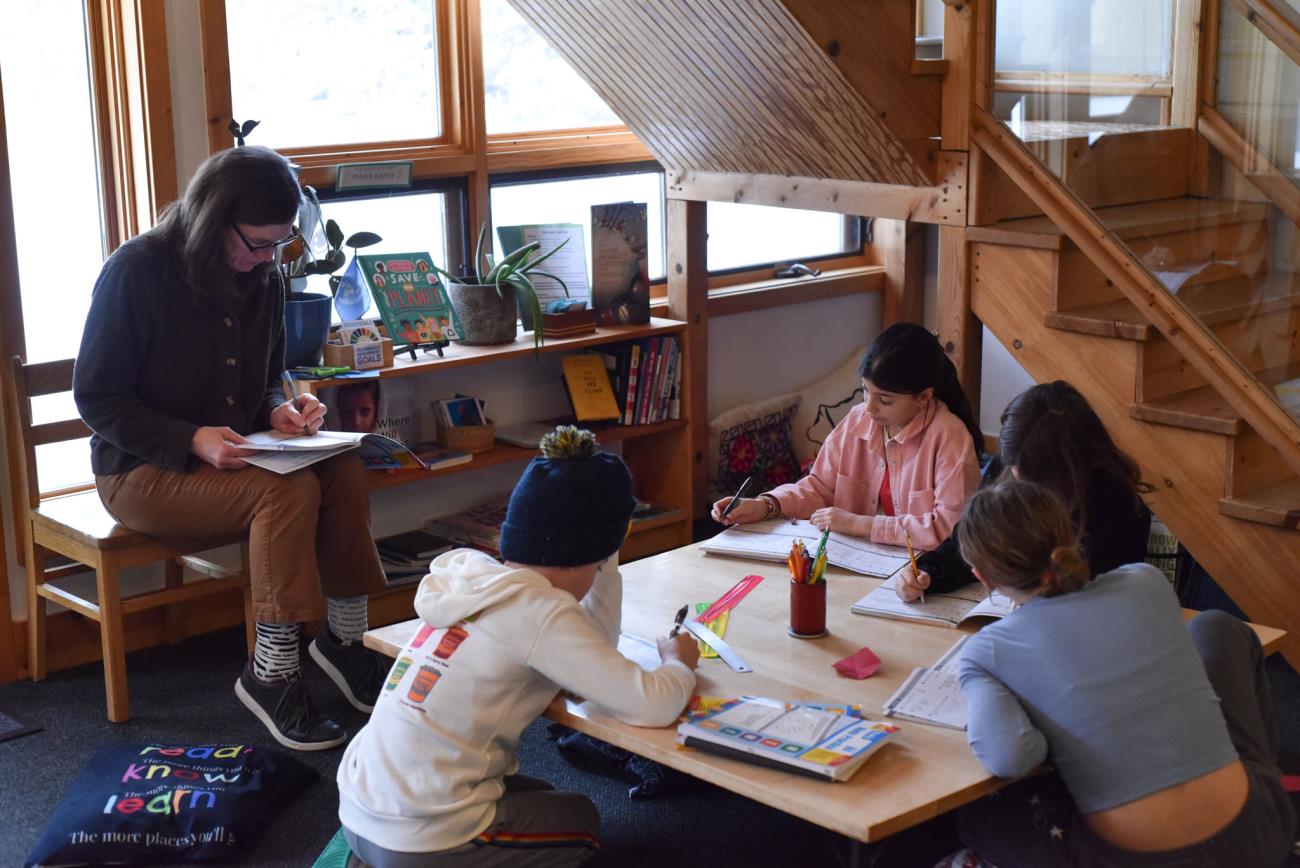When sharing with friends or relatives that your child attends a Montessori school, you may have fielded the question, “They get to do whatever they want, don’t they?” This misperception of the concept of freedom with responsibility also invokes a more traditional definition and expectation of what discipline looks like at school. Just as the children build their skills and individuality by choosing where to work, with whom to work, and what work to focus on at a given moment within the parameters of their abilities, they are also expanding these freedoms as they develop the discipline envisioned by Dr. Maria Montessori in The Discovery of the Child, p. 51
“In our system, we obviously have a different concept of discipline. The discipline we are looking for is active. We do not believe that one is disciplined only when he is artificially made as silent . . . Such a one is not disciplined but annihilated. We claim that an individual is disciplined when he is the master of himself and when he can, as a consequence, control himself when he must follow a rule of life.”
From the youngest learners in Nido to the eldest at Compass Montessori Junior High, these individuals are on the path to reaching their potential as a contributing member of our world. The adults guide this growth by ensuring that the support provided serves as an “aid to life.” The infants explore their environment, gaining greater skills and awareness of their abilities and how to put them to use. In YCC, the young learners continue to develop their physical and cognitive skills as part of a community. They practice taking care of themselves and others, putting clothes on, preparing food, and pouring water. They ask you to “help them to help themselves.” This path logically leads to the primary child setting the table for lunch, beautifying the environment, and caring for the younger learners in their community. The patience developed by primary children observing the careful formation of a letter by the adult strengthens their discipline, which is further nurtured by their careful repetition of the lessons given until they are satisfied with their skills and are ready to move on.
In keeping with the changing developmental characteristics of elementary children, the adult continues to provide opportunities for them to develop self-discipline in a safe and predictable environment. Their freedoms grow exponentially as they exhibit the ability to properly handle the commensurate responsibility. They have worked together to create a classroom agreement that sets the expectations for themselves and others, thus acknowledging the reason for and necessity of having and following rules. These agreements serve as an anchor for the children when they venture outside of the classroom and interact with the greater community. The learners choose what research to pursue, contact resources outside of the school community, and organize outings to enrich their learning. These real world experiences develop social, organizational, and time management skills: skills necessary for them to develop self-discipline.
With this foundation in place, the junior high student continues to build these essential skills, taking on greater responsibilities for their learning and their community’s well-being. They are the keepers of their learning, which involves researching, planning, and implementing their trips abroad. They draw on their years of grace and courtesy lessons and practice and apply these principles to peer conflict resolution based on a foundation of equity and justice. They continue to practice their skills of self-discipline in a safe and predictable environment that they helped establish.
Mistakes will be made and are an essential part of the development of an individual’s moral compass and self-discipline. In contrast to the Oxford Languages definition of discipline as, “the practice of training people to obey rules or a code of behavior, using punishment to correct disobedience,” Montessori provides an opportunity for reflection and growth when mistakes occur while preserving the dignity of those involved. The “active” approach to discipline posited by Dr. Montessori takes the development of the whole child into consideration. It allows for, rather welcomes, those inevitable mistakes that come from being human. The learners (adults included) who make the mistakes learn to be accountable for their actions and repair what has been damaged. From the youngest age, children are engaged in lessons of grace and courtesy and social and emotional awareness, so that when they make a mistake, they understand why they need to take responsibility for their actions.
So, after you respond to your friend or relative that your child’s freedom at school is balanced with great responsibility that allows for your child to develop into the kind, loving, curious, contributing member of our world that they are meant to be, please invite them to come observe the development of self-discipline in action.
